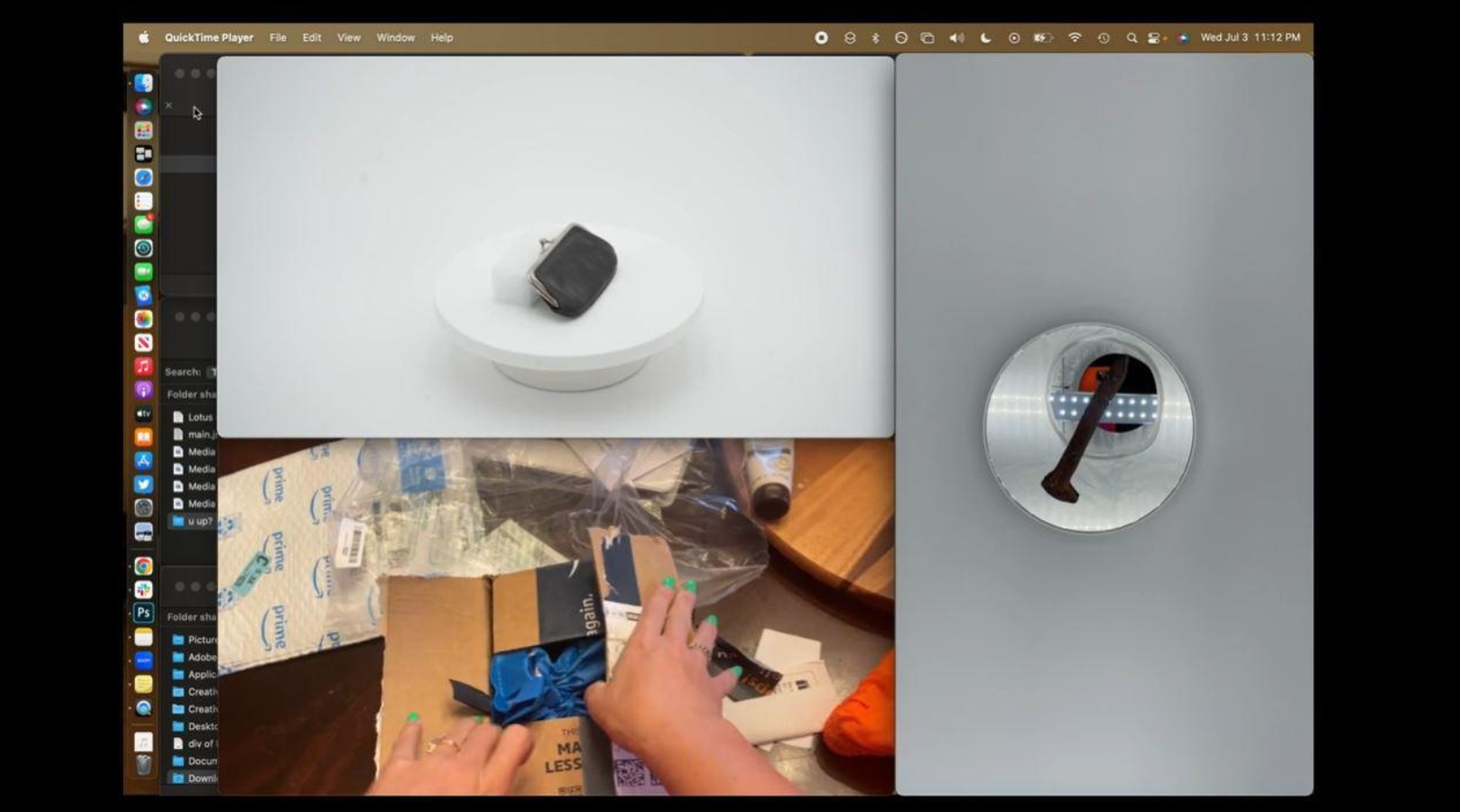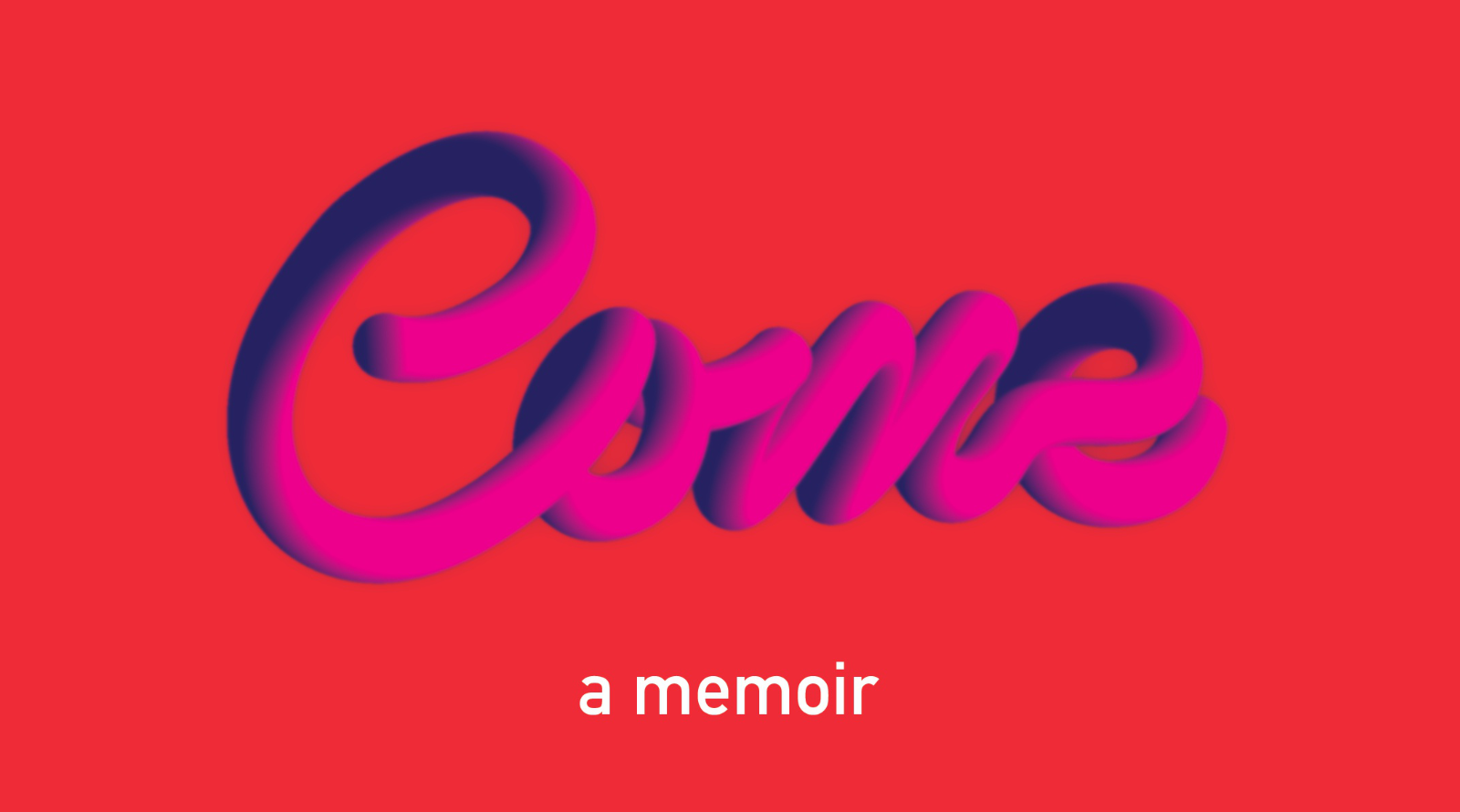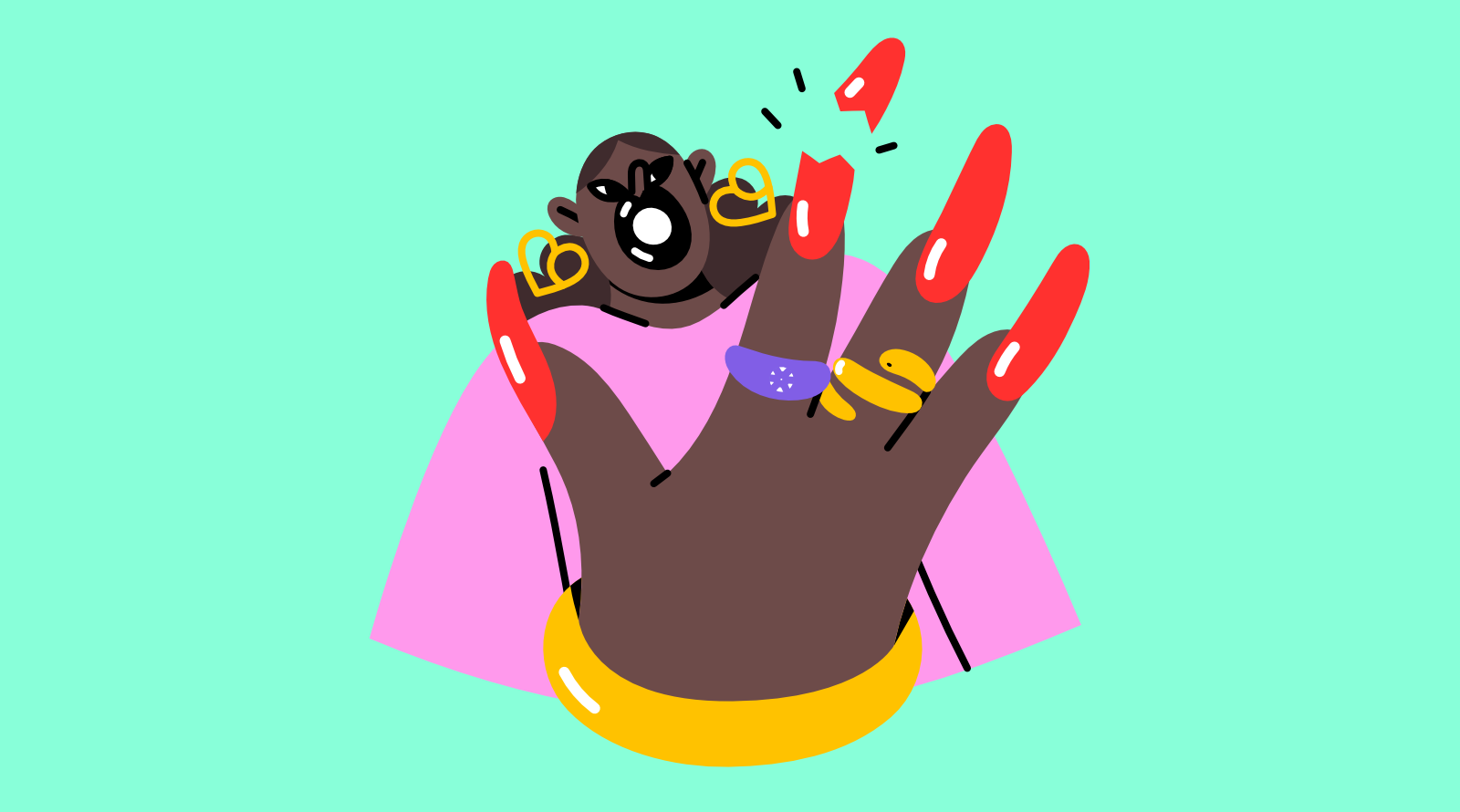I’ve recently come across the work of Californian artist, dominatrix, and parent Kim Ye, and I am, to be frank, fangirling. Not only is Kim Ye the editor of the groundbreaking new anthology ProMomme: A Sex Worker’s Guide to Parenting (co-published by CashMachine and the Sex Worker Outreach Project [SWOP] of Los Angeles), they are also a talented experimental film artist. In June 2024, Kim Ye released an experimental short film entitled U up?. It was filmed on a Mac computer using the screen recorder function to capture multiple windows of static files, audio, and video clips opened, manipulated, and played simultaneously to create a movie based on themes of sex work, parenting, and human existence in a world of racism and consumer capitalism.
Film synopsis: “What keeps you up at night? Is it your to-do’s, shopping list, bad TV, or just good ol’ anxieties about the end of the world? In this middle-of-the-night multi-media VJ set by Kim Ye, the artist takes you on a psychosexual journey via her desktop. Mixing source videos from her research and unedited videos from her in-progress experimental film Mother Fucker, this virtual performance entangles participants in a web woven from the loose ends of parental sleep deprivation and racialized environmental anxiety. Incorporating reality television, consumerism, sexual fantasy, and historical research as salves that simultaneously alleviate and exacerbate the suffering of modern pleasure, this late-night voyeuristic journey reaches out into the Internet to ask U up?”
There is a uniquely American experience of consumer capitalism, and a uniquely BIPOC one within that experience. Like Kim Ye, I too have watched The Real Housewives of Beverly Hills and seen within those hysterical wine-throwing white women (until Season 10, when Gisele Beauvais joined the cast, and Season 11, when Crystal Kung Minkoff joined, RHOBH was all-white), a kind of carefree lifestyle that I deeply envied. Bubble-wrapped in wealth and privilege, they reflected my childhood desires to be accepted; to be comfortable; to have the right clothes and shoes; to be, in a sense, white.
It’s the same fantasy held by Venus Xtravaganza in Paris is Burning (1990) [skip to minute 2:00]: “I would like to be a spoiled rich white girl – they get what they want, whenever they want it, and they don’t have to really struggle to have nice things and nice clothes.” The reality of being a Black girl in my life was to accept at an early age that I am not going to get anything I want with ease – but I can work my ass off for it and maybe come close to getting a piece of what the white girls had. It’s the fantasy that young girls of color in the United States like myself have too often when we are confronted with the daily realities of racism, scarcity, and strife that plague our lives in varying degrees based on our background. We think that we can get there if we just have all the right accessories, the right clothes, the right shoes, the right markers of wealth and privilege. We think, we desperately hope, we can buy our way to white. I am proud to be a Black woman, and always have been, but I also – like Kim Ye – indulge through shopping in the fantasy of being a blonde wealthy white girl during moments of heightened stress and panic.
There is a uniquely American experience of
consumer capitalism, and a uniquely
BIPOC one within that experience.
Kim Ye shows the viewers how they balance playdate drop-off times, finding childcare, feeding their baby, and creating art–along with session bookings, rebranding on OnlyFans, and content creation. They juggle taking their newborn for walks, laundry, and navigating the bottom-of-the-world-falling-out experience of when an online platform’s credit card processor changes its regulations and no longer allows the type of content you make. I enjoyed seeing Kim Ye unbox Amazon wishlist sends from their subs in what I saw as a reflection on consumer capitalism.
Personally, I feel that so much of dominatrix and sex-worker activity in my own heavily online community sphere is taking place through e-payments, financial domination, and tributes in the form of electronic sends or wishlist purchases; submission and care from clients demonstrated through purchasing consumer goods online is becoming the default norm. I loved Kim Ye’s moment of uncertainty when unboxing a pair of neon-orange cargo pants sent by a sub through Amazon: “Er…did I put these on my wishlist?” I remember my own nights of mindless wishlist additions at odd hours and cart-filling of anything, everything, that might fill the hole I felt within me; buying items at unspeakable midnight hours and when the item arrived some days later thinking to myself…"When did I buy this? Why did I buy this?”
Around 8:40 of U up? ominous background music (listed as Biofeedback synth from Other Minds [2022] by Micah Huang) starts and the vibe gets a bit more intense. The artist’s constant opening and closing of windows, clicking, and simultaneous playing of multiple videos and clips at once mirrors the frenetic nature of our information age. It is stunning to think back to when I first saw this technique in 2013 in the artist Camille Henrot’s multimedia-video art installation Grosse Fatigue, that this information absorption rate was not yet the norm. When Henrot discussed their decision to use this technique, they reflected: “I didn’t know if a human mind would find it pleasant to be confronted with so much information so quickly.”
I feel that this line from Henrot is part of the answer I would give to Kim Ye’s question of U up?: Yes, I am awake at four in the morning with eight tabs open because this is the reality of managing an online sex worker brand and also living in the digital age and also trying to soothe my brain from the massive anxiety which comes from the world literally burning and also trying to see which new ways the world has caught on fire since the last seven seconds I checked social media. No, it is not pleasant, but it is my current drug of choice to avoid having to rawdog reality without anesthesia. Kim Ye's film is an account of the apocalypse from a sex worker perspective: doom scrolling, content creation, shadowbanning, parenting, and the influxes – and outgoings – of large sums of cash.
A grocery bill of over $600 USD is displayed, and I thought to myself: $600 for a family of four grocery shopping in the US? That’s cheap! The rising costs of living are juxtaposed with videos of the California wildfires, videos of United States political candidates engaged in debates that would be comical if the two politicians displayed didn’t hold the fates of approximately 334 million U.S. Americans in their wrinkled hands; we see news clips about rising temperatures and the latest crisis of the 24-hour news cycle. Henrot's legendary film, which used Global South creation stories as the script for a spoken word performance played over video clips of the colonial archives of museums, was a reimagining of genesis; a new origin story for humanity, which also touched on the physical legacies of first contact between Europeans and non-Europeans–a period in history which was itself apocalyptic for non-Europeans. The amount of information is both tranquilizing and terrifying to the human brain. What if I just, as Kim Ye’s script narrates, “Forget about the world and the part you play in it?”
Kim Ye’s manipulation of online financial domination content as multimedia video art commenting on capitalism is truly inspired; we see participating sex workers in the film–Lena Chen, Empress Ming, Sorceress Bebe, King Noire, and Maxine Holloway–embody the mindless aching void within us that desires to spend, spend, spend – to fill the hole(s) with things. As a sex worker watching this, I realized that I was the paypig all along (DUN DUN DUN!) to capitalism and to my own insecurities about not being white enough – rich enough – or safe enough in the United States of America. I am an Afro-Latinx woman, and not an Asian woman, so my ability to relate to the exact nuance of Kim Ye’s detailed descriptions of anti-Asian racism and outsider status have their limits. But to this end, it was extremely important for me to consider and (re)assess the unique discrimination Asian-Americans and Asian migrants face in the United States of America in regards to whiteness.
There are as many moving parts to the themes of U up? as there are open screens and changing windows – guilt at being protected in the relative safety of a certain class status in the United States of America while unspeakable suffering is happening elsewhere (as narrated by Lena Chen); the threat of wildfires; the unhinged behavior of members of the political landscape in the USA; fears of increased risk of cancer based on one’s gender and racial background; the constant barrage of advertisements to buy and spend more on platforms like YouTube; insecurity about motherhood; desire. I am as overwhelmed by U up? as I am by the world. I appreciate Kim Ye’s transformation of findom dialogue into an artistic mode of horror-esque storytelling. To me, the dominatrixes in the film mirrored the haunting inner voice within me which asks persistently and persuasively: What if you stopped trying to save the world? What if you stopped trying to be good? Wouldn’t it be so much better to just… give up? Aren’t you tired? It was a physical and mental relief for me to see those concerns, the anxiety, the fear, and the utter exhaustion of being a person in this world – from a uniquely sex worker and BIPOC perspective–reflected in this way.
There is a certain grief for me in accepting the words of King Noire’s performance in the film, “You can try all you want, but you’ll never be enough for them. You’ll never be a white girl. So know your fucking place.” I review these aspects of the film from the standpoint of a Black woman who grew up in the United States of America–as someone who did once try to buy my way to whiteness, to peace, and to belonging. And it is true, that it simply does not work. It only goes so far, even for a light-skinned woman like myself with certain access to the privileges of whiteness. Yet I know more than one BIPOC person back in the United States of America still trying to buy their way out of the reality that, again in King Noire’s words, “You are always going to be an outsider.” As sex workers, we feel it to yet another degree.
I look forward to seeing what comes next from Kim Ye, which according to the film’s description on Vimeo will be another experimental film entitled Mother Fucker.
Still from U up? by Kim Ye.
Still from U up? by Kim Ye.
U up? can be watched by requesting access through this Google Form (this film is 18+, viewer discretion advised, sexually explicit content and graphic nudity).
Discover more of Kim Ye’s work here.
Are you a sex worker with a story, opinion, news, or tips to share? We'd love to hear from you!
We started the tryst.link sex worker blog to help amplify those who aren't handed the mic and bring attention to the issues ya'll care about the most. Got a tale to tell? 👇☂️✨





